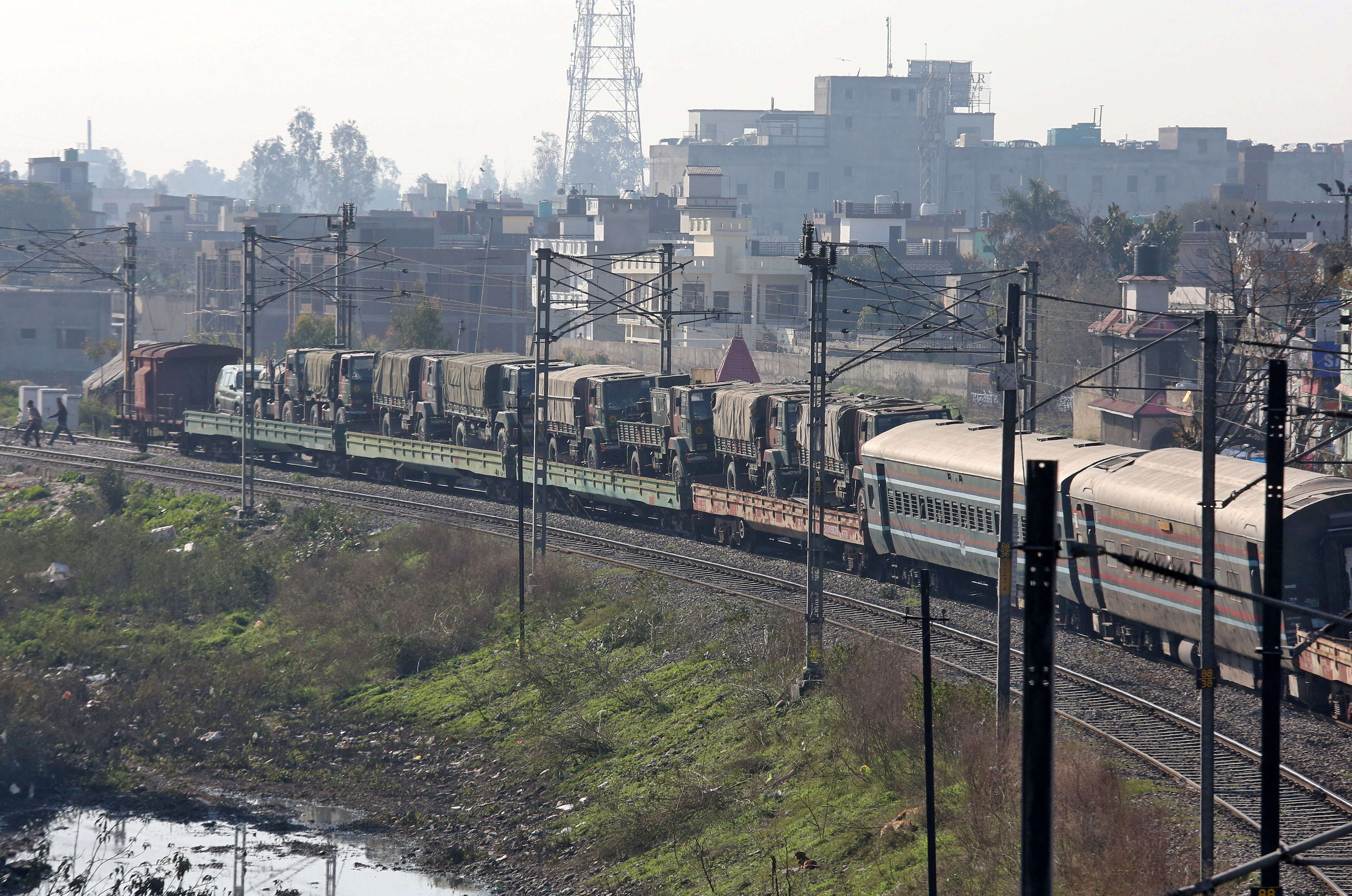 Indian army trucks are transported on a train near a railway station on the outskirts of Jammu February 28, 2019. REUTERS/Mukesh Gupta
Indian army trucks are transported on a train near a railway station on the outskirts of Jammu February 28, 2019. REUTERS/Mukesh Gupta India and Pakistan ramped up their conflict over the last 24 hours when they struck down each other’s jets.
India launched strikes into Pakistan on Feb. 26 in response to a Feb. 14 suicide bombing in Kashmir that killed 40 Indian paramilitary troopers. Indian Foreign Affairs Sushma Swaraj claimed that the Jaish e-Mohammed terror group is responsible for the attack and that they killed “a very large number” of people in the strikes, although the exact number has not been released.
In response, Pakistan shot down two Indian jets and captured one of the pilots. India then responded by shooting down one of Pakistan’s jets.
Also on Feb. 26, Indian and Pakistani troops fired at each other at demarcation line between Indian and Pakistani territory in the former princely state of Jammu and Kashmir. Five Indian soldiers were injured in the skirmish.
Secretary of State Mike Pompeo and Acting Defense Secretary Patrick Shanahan urged both sides to use restraint.
According to The Atlantic’s Uri Friedman and Krishnadev Calamur, the two countries have engaged in “multiple conflicts since the end of British colonial rule in 1947 resulted in the partition of the subcontinent.” In 1998, both states announced that they had nuclear weapons.
“The ongoing hostility elicits questions, not to mention fears, about the point at which the two states are prepared to resort to using nuclear weapons,” Friedman and Calamur wrote. “It brings to the fore the logic of possessing such weapons, whether states are taken seriously as great powers without them, and indeed whether possession of them limits a nation’s military options, especially when its public is baying for war.”
In January 2018, the Trump administration announced it would withhold “hundreds of dollars” from Pakistan until the country cracks down on terrorism within its borders.
“Until the Pakistani government takes decisive action against groups including the Afghan Taliban and Haqqani network, we consider them to be destabilizing the region and also targeting U.S. personnel,” then-State Department spokeswoman Heather Nauert said. “Despite a sustained high level of engagement by this administration with the government of Pakistan, the Taliban and the Haqqani network continue to find sanctuary in Pakistan.”























 More news and opinions than at a Shabbat dinner, right in your inbox.
More news and opinions than at a Shabbat dinner, right in your inbox.